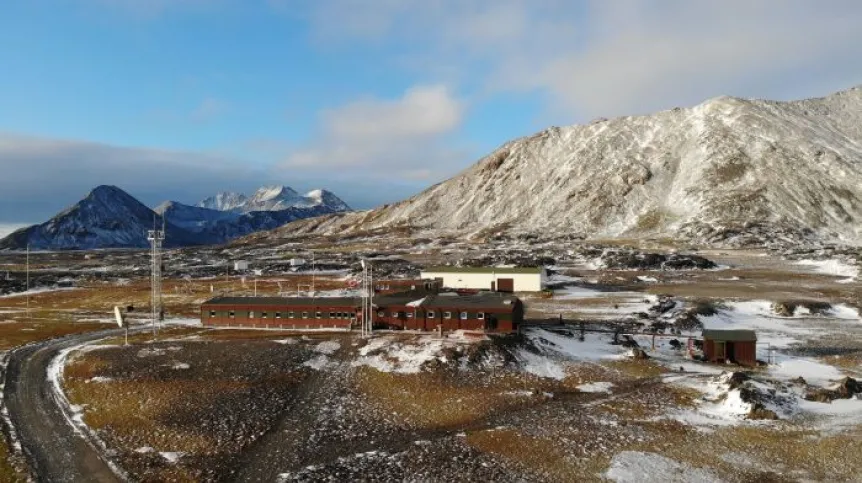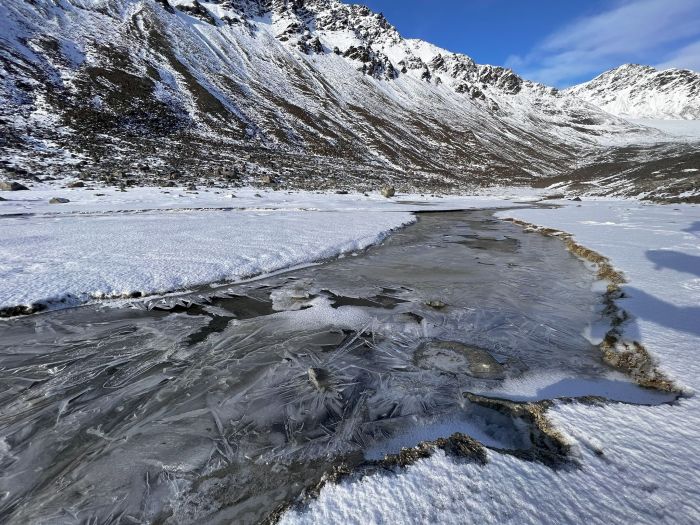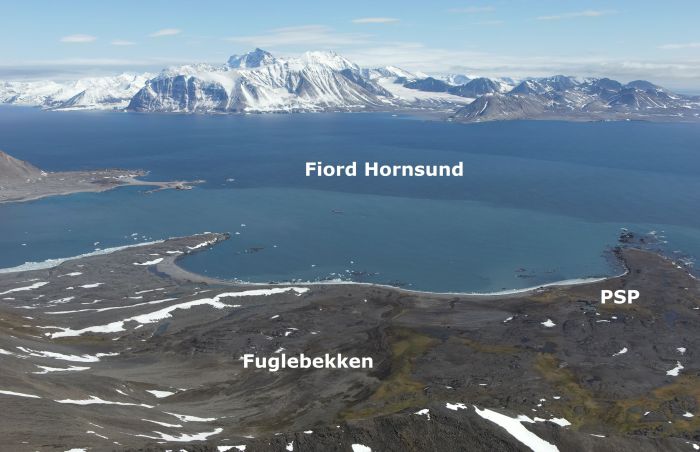
The water temperature in the Arctic Fuglebekken River in Svalbard increased by 6 degrees Celsius between 2005 and 2022. Scientists from the Institute of Geophysics of the Polish Academy of Sciences, who studied this variability, emphasize that they did not expect such large increases.
The research was carried out by a team of hydro-climatologists including: Marta Majerska (doctoral candidate), Professor Marzena Osuch and Dr. Tomasz Wawrzyniak, who have been studying water circulation in catchments near the Polish Polar Station Hornsund in southwestern Spitsbergen for years.

The results of their latest research, published in the journal Science of The Total Environment, show that the thermal regime of the Fuglebekken catchment is sensitive to ongoing climate changes. 'The Arctic region is particularly vulnerable to the effects of climate change, and observing the water temperature in Arctic streams provides valuable information about the processes that take place there', the researchers emphasise in an interview with PAP - Science in Poland.
Thermal regime is a characteristic, rhythmic course of water temperature in the river throughout the year, determined on the basis of many years of observations. 'In the case of the Arctic rivers we study, this regime shows high seasonal and multiannual variability. The river's water temperature is influenced by meteorological and hydrological factors, as well as the type of supply t the river. Moreover, remember that rivers are active here only during a relatively short summer, for example, the Fuglebekken is usually active from June to September', they explain.

The scientists analysed the variability of observed water temperatures collected during summer periods in 2012-2022 with two methods (including machine learning). Their research was based on constant meteorological monitoring conducted at the Polish Polar Station Hornsund and long-term hydrological research conducted during the summer season.
The results of the conducted analyses indicate that the ground temperature and sunlight are most closely related to the water temperature in the Fuglebekken River, which did not surprise the researchers.
'However, we did not expect such large increases in water temperature, which at the end of June were up to +6.0°C for the period 2005-2022. Earlier snowmelt and higher air and ground temperatures, which lead to an increase in water temperature in streams, undoubtedly have a huge impact on Arctic ecosystems', the researchers emphasise.
The obtained results showed a statistically significant increase in water temperature throughout the summer season. 'These changes range from 0.5 to 3.5 °C per decade. The greatest increase in water temperature was recorded in the second half of June, which was related to earlier snowmelt. In the second half of July and August, during low flow, increases in water temperature are associated with higher air and ground temperatures. In September, changes in water temperature are correlated not only with higher air temperatures, but also with an increase in precipitation', they report.
They add that water temperatures in the Fuglebekken River are still relatively high for a High Arctic river: maximum annual water temperatures ranged from 11.3°C in 2012 to 17.8°C in 2020, and these values ware higher than air temperature observed at the Polish Polar Station Hornsund.
In future studies, scientists plan to expand their analyses with data from other rivers near the Polish Polar Station Hornsund.

The scientists from the Department of Hydrology and Hydrodynamics and the Department of Polar and Marine Research of the Institute of Geophysics PAS remind that water temperature in streams plays a key role in shaping and maintaining healthy ecosystems. It affects many physicochemical and biological parameters, thus determining the distribution and number of species in river habitats and beyond.
For this reason, better understanding and assessment of the hydro-climatic conditions of the Svalbard Archipelago are among the most important research needs in the Arctic.
'Through our measurements, modelling and publications, we provide evidence of climate change and its impact on the functioning of river catchments. Water temperature is one of the important indicators of these changes, therefore research in this area is crucial for understanding current and future changes in the Arctic environment', conclude the researchers from the Institute of Geophysics PAS. (PAP)
PAP - Science in Poland, Agnieszka Kliks-Pudlik
akp/ bar/ kap/
tr. RL













